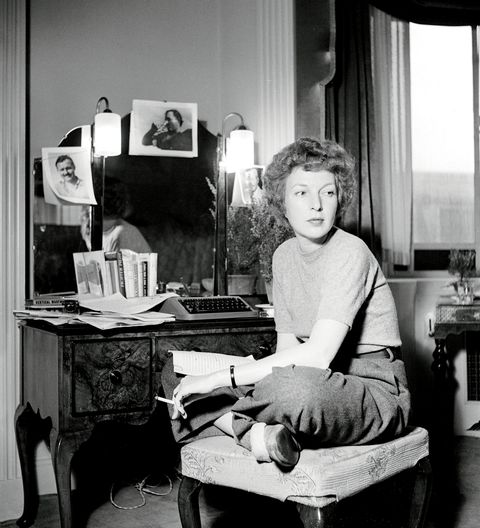There are arguably no Bryn Mawr college dropouts that have made such a name for themselves as Martha Gellhorn.
An almost-alumna of Bryn Mawr College, Martha Gellhorn was a fearless war correspondent with dazzling prose. She meant to graduate as part of the class of 1930, but she dropped out of college in 1929 and went “to go everywhere, see everything, and sometimes write about it.”
Now that it is her birthday, it is fitting to dig deep into the Bryn Mawr College archives and take note of who she was at Bryn Mawr and beyond.
Unlike other well-known alumnae of Bryn Mawr College, such as Katharine Hepburn, Gellhorn’s legacy has been all but forgotten on this campus, despite the fact that Gellhorn is regarded as one of the great war correspondents of the twentieth century. Name a war during that time, and she was most likely there. She wrote about the shelling horrors of the Spanish civil war, the D-Day invasion of World War II, American war crimes in Vietnam, Korean War and other conflicts of the time. She was ever critical of capitalism and determined to combat the injustices in the world.
Gellhorn was an early innovator of “new journalism” (e.g., non-fiction that uses fiction style to humanize the subjects of the story) and published her first set of nonfiction writing in 1936, entitled The Trouble I’ve Seen. The book was an account of all the horrors she had witnessed while traveling throughout the country in the midst of the Great Depression and it is harrowing. It breathes life into people who would otherwise be forgotten, those children and families among the millions who have been mistreated and oppressed in their life. Gellhorn’s writing refuses to neglect people and the crimes committed against them by institutions of power.
Gellhorn’s fiction work, though never remembered as well as her nonfiction, is brilliant, and offers insight into her own life and beliefs. What Mad Pursuit, Gellhorn’s first novel published in 1934, has been all but forgotten. The book was never reprinted and few copies still exist. The novel is a piece of lost genius: one of the few copies left in the world resides in Canady Library, where the edges of the paper are yellowed, and the cover is nearly torn off.
I first discovered that the novel existed through reviewing old Bi-Co Newspapers. Gellhorn rarely listed What Mad Pursuit as a published piece, and a limited record of it remains online. The novel itself tells the story of three college girls at an institution eerily similar to Bryn Mawr, two of whom chose to drop out and one who is expelled. The main character, Charis, seems to bear some similarity to Gellhorn herself, a fighter of injustice and lost causes. Charis ends up leaving the fictional institution, Marlborough College, to stand up against the expulsion of her classmate, Sue, who was kicked out for spending the night with a man. While we can never know if this story bears any truth as to why Gellhorn herself left Bryn Mawr College early, it offers an interesting theory.
Gellhorn was an active student at Bryn Mawr for the three years she was here: she participated in the Self Governenance Association, acted as part of theatre productions and participated in an event referred to as “The Assembly,” in what seems to be an early form of model United Nations meetings. Everywhere she went she made a stark impression as a woman of determination, fervor and passion. As recorded in the Bi-Co Newspaper records, in 1929 the Bi-Co described Gellhorn’s remarks as “forcefully put and forcefully expressed…. No one agreed, … but everyone applauded.”
In the winter of 1998, Gellhorn committed suicide at 89 in response to a cancer diagnosis.
Gellhorn’s life was one to be remembered, so why has she been all but overlooked on our campus?




1 comment
Martha Gellhorn is prominently featured in the wonderful book titled “The Women Who Wrote the War,” copyright 1999, by the late Nancy Caldwell Sorel. Gellhorn’s life is indeed one to be remembered, as are the lives of all of the brave women correspondents memorialized in this well-written, exhaustively researched and highly informative book.